PostTime:8/12/2022

Recently, Dr. Michail Paraskevas and co-authors published the article “Informal Personalized Teaching (IPT): Bridging Gaps in Theoretical and Practical Knowledge during Idle Times in a Chemistry Lab” in The Journal of Chemical Education, in which the authors introduce in detail an innovative teaching method developed from organic chemistry lab teaching for undergraduates at GTIIT. The Journal of Chemical Education is published by the American Chemical Society and Division of Chemical Education, with an impact factor for 2021 of 3.208.

In today's interview, Dr. Michail Paraskevas elaborates on this method.
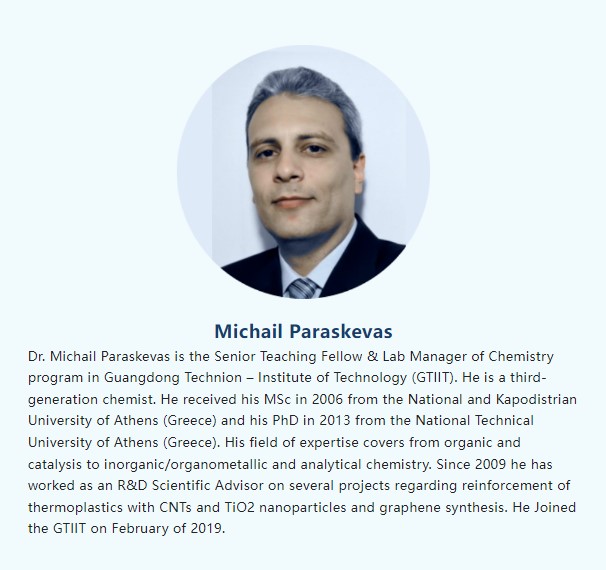
What courses are you teaching in your current position?
I am teaching Organic Chemistry, Analytical Chemistry, Principles of Chemistry B and Analytical Lab 1 and 2.
What does 'informal' in 'Informal Personalized Teaching' refer to?
We believe that the best way of learning during the laboratory process is by not being stressed. The meaning of informal is describing the relaxed, friendly nature of interacting with students while enforcing their theoretical knowledge in combination with the practice.
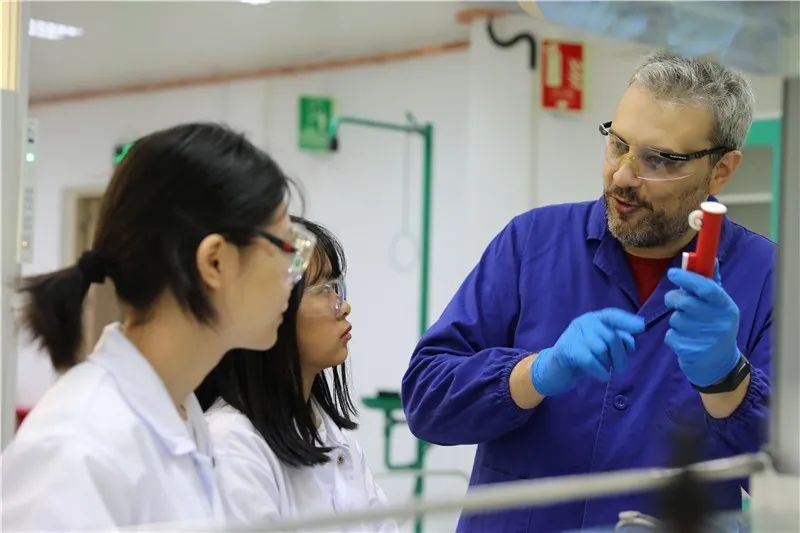
How does IPT work in the lab?
When the experiment begins, there is a lot of idle time between various phases and students are doing nothing but wait. We are exploiting these “dead time” periods for individual educational purposes. We have done it by creating “mini sessions” for enriching students’ background with fundamental scientific theories and for rehearsing concepts in general-, physical-, and organic chemistry, essential for understanding different principles in the behavior of molecules. During these idle times the teaching is given to a single student, where a teacher will cater to his needs but also through “mini courses” given to smaller groups of 2 or 3 students discussing with them basic physical and chemical ideas, spectra interpretation and other basic concepts which are part of the necessary theoretical toolbox of every science major or chemical engineer and are part of the critical competency connected with scientific knowledge.

What are the innovative features and advantages of IPT, compared to other teaching methods?
Usually, most laboratory courses do not target individual needs, but try to address in a generic way the knowledge and skills of a larger group. We have seen a huge debate in literature about the purpose of laboratories and many focus around the practical skills and we have seen that many students operate in a mechanical way. IPT is innovative because it connects the theory with the practice in a way that it improves the overall understanding and critical thinking so nothing is done mechanically and provides better results. Another innovation is the personalized character of the method which caters to individual needs and doesn’t just treat everyone in a generic way. The third innovative aspect is the full exploitation of time which becomes a continuous propagation of knowledge in both theory and practice.
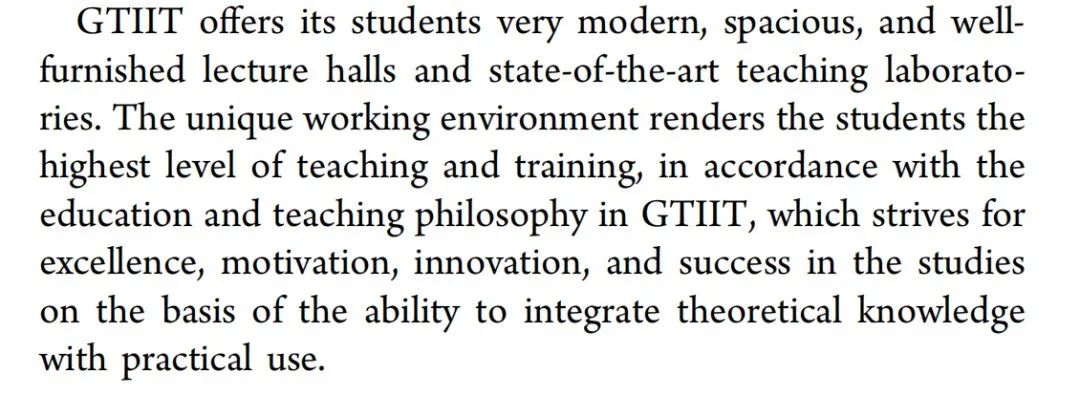
How can IPT positively affect students’ learning? In what aspects?
As mentioned before, every action must not be mechanical and now students understand why and how it is done. This understanding is something which will be applied later on in other occasions. Through understanding, mistakes are avoided and at the same time also accidents are avoided, which improves performance and safety. Overall, when someone knows what he is doing, the performance and the results are improving and experiment by experiment efficiency also becomes better. In the final part, even reporting the experiment becomes an easier process because the report is the final merging of the theory and the practice.
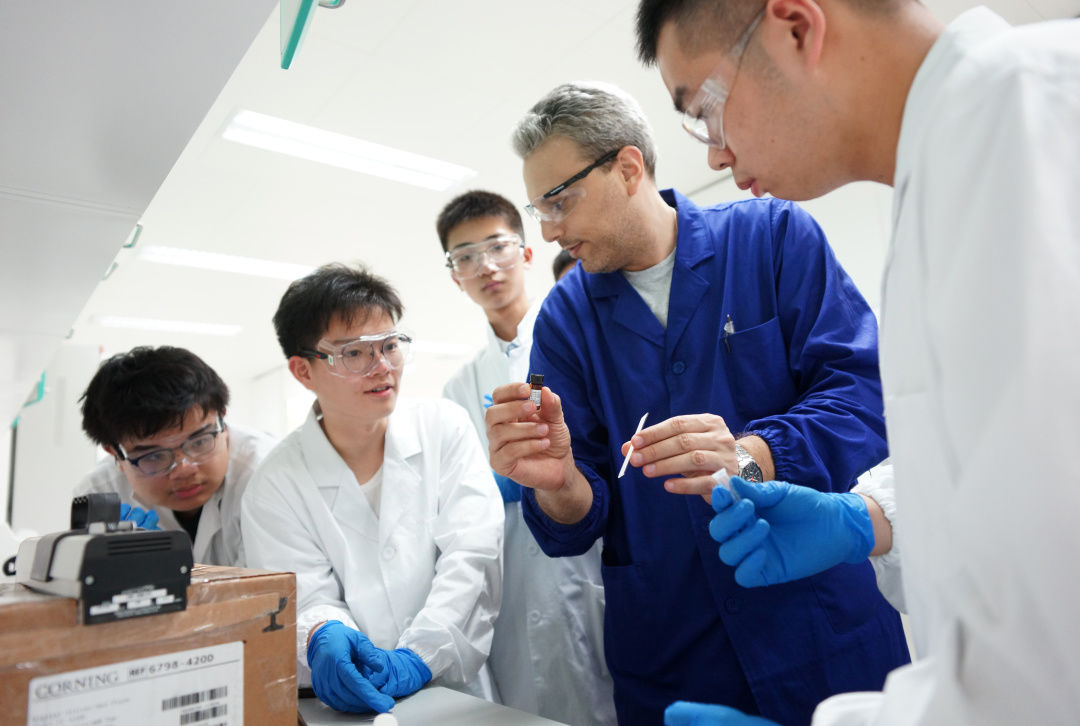
What are the results of this approach so far? Are there any students' feedback about IPT?
The evaluation of the process was based on a questionnaire given to the students, asking their feedback on many aspects of the lab including the IPT method. An overall average of 90% of students were positive of which 60% were very positive and 30% positive. Similarly, students found it beneficial and we also noticed that the average grades in performance and reports have also improved in comparison to other cohorts before the introduction of this method.
Do you think IPT can be adopted in other courses?
I believe that in Chemistry, the Organic Laboratory is one of the most complicated laboratories and definitely if good results were achieved there, then IPT can be applied and benefit many other Laboratory courses.
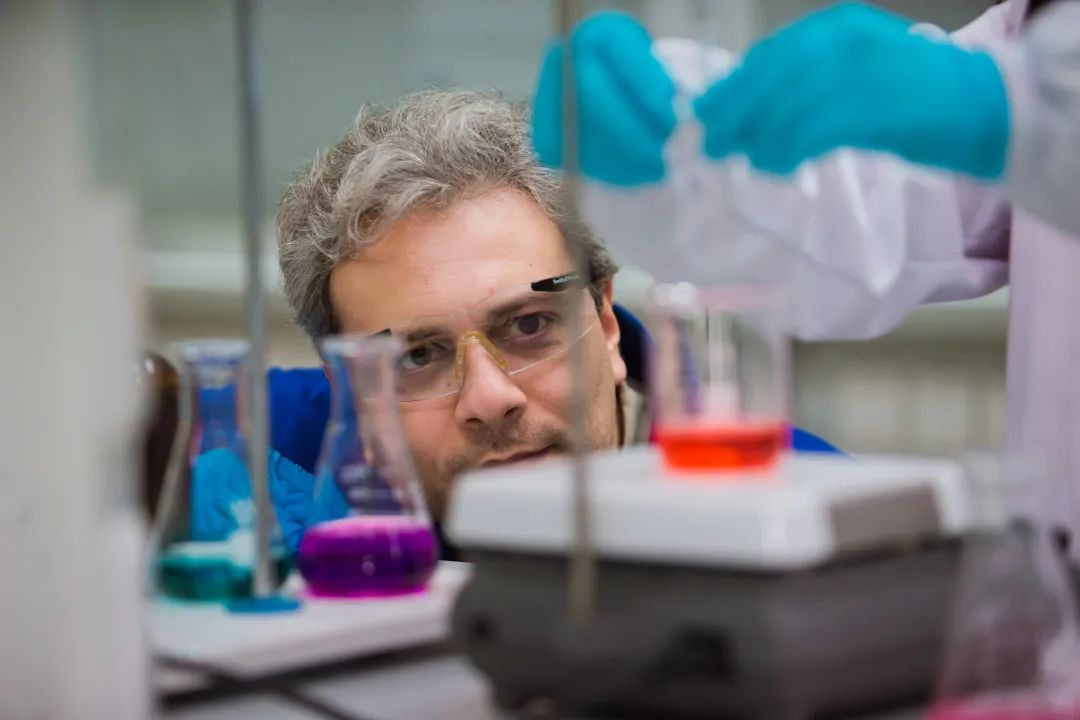
Students' feelings
IPT, the teaching method developed by the group, has been adopted in the Organic Chemistry lab course in GTIIT and has good responses. Li Tingzhu, a Chemical Engineering student, shares his thoughts. “As a Chinese proverb goes, 'to learn without thinking is blindness, to think without learning is idleness'. Since TA will accompany the whole experiment process, there is a theoretical problem solver at any time. If you have any questions, you can ask him/her, that is why I can learn more useful things in addition to experimental skills in the organic chemistry experimental course.”
Li Ying, also a CE student from cohort 2019, says, “I am not very good at theoretical knowledge, especially in the fields related to organic chemistry, which are notoriously difficult. But teacher's specific guidance made me have a deeper understanding of organic chemistry and improved my experimental ability.”
Text: Michail Paraskevas, Li Tingzhu, Li Ying, GTIIT News & Public Affairs
Photos: Michail Paraskevas, GTIIT News & Public Affairs
© GUANGDONG TECHNION-ISRAEL INSTITUTE OF TECHNOLOGY | 粤ICP备17036470号
